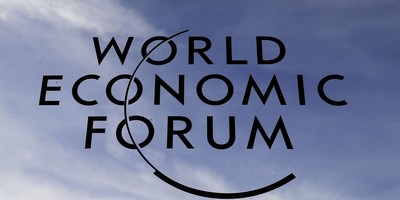In September of 1789, a scant six months after the first legislative session in our nation's history convened, Congress passed a resolution recommending a national day of thanks. On October 3, 1789, President George Washington issued his Thanksgiving Proclamation, establishing the first national Thanksgiving and giving us one of the most concise definitions of purpose for the United States.
In his proclamation, President Washington asked for Thanksgiving to be a day to recognize "the peaceable and rational manner in which we have been enabled to establish constitutions of government for our safety and happiness, and particularly the national one now lately instituted; for the civil and religious liberty with which we are blessed, and the means we have of acquiring and diffusing useful knowledge."
Washington used his brief address to explicitly endorse these civil liberties and, specifically the importance of knowledge. Washington and our other Founding Fathers thought that knowledge, free speech, and a free press were of paramount importance to the survival of liberty in their new nation.
As I look back over the past year, however, I see many cases in which Washington’s commitment to the pursuit of knowledge and the upholding of civil liberties has come under attack. In Wisconsin, Milwaukee County District Attorney John Chisholm began waging a secret war against Governor Scott Walker, conservative activists and Republican donors in 2010. Under the cover of “John Doe” investigation, in which conservative targets were bound to silence by a gag order, pre-dawn, the DA was able to target and intimidate political enemies without probable cause, in some cases tapping email and text message communications and executing paramilitary-style raids. The story only came to light years later thanks to the courage of an unnamed whistleblower and reporter Matt Kittle, both of whom risked jail time to expose the probe. Their courage ultimately paid off last July when the state supreme court declared the John Doe probe unconstitutional.
Recommended
At the University of Texas Law, school officials had been shamelessly providing admissions favors to unqualified applicants, but UT Regent Wallace Hall blew the whistle. Immediately, powers on all sides swooped in to silence him and attempted to paint a respectable veneer over the scandal. School officials launched a barrage of criticism at Hall and drastically understated the extent of the favoritism. Local politicians tried to keep UT’s admissions records secret. Even the local media was initially skeptical. Texas Watchdog reporter Jon Cassidy, however, confirmed Hall’s claims and found that there was indeed admissions favoritism.
Unfortunately, not all of these stories end in the triumph of the free press. The Federal Communications Commission’s decision earlier this year to regulate the Internet like a public utility under Title II regulation through net neutrality. The new rules brought the Internet - perhaps the closest thing humanity has achieved to a pure, free flow of information - under an unprecedented level of government control. Under the guise of preserving freedom for consumers, the FCC’s adoption of Title II stifles internet providers - and by extension the free flow of information - by reducing their ability to innovate and provide their customers with quality access to information through the Internet.
I have seen these stories develop firsthand through the work of investigative journalists at Watchdog.org, but they are only a few of many assaults on free speech our nation has suffered. The battles our forefathers fought are different than the challenges facing us today, and the threats to free speech out children will encounter will probably take a different shape than those we faced in 2015. What Washington understood, and what we must remember today, is that the principles of free speech undergirding these challenges hold true at all times. They are our national hallmark, codified in our Constitution - an inheritance for which we can be most grateful this Thanksgiving.
We must not give thanks passively, however. The abuses of John Doe in Wisconsin, the attempts to silence a whistleblower at UT, and even the FCC’s decision to regulate the Internet like a utility remind us that the means of acquiring and diffusing knowledge that Washington treasured can slip away at any time. It happens subtly - one university, government agency, or local election at a time. Let us endeavor not to let this precious freedom erode on our watch.

























Join the conversation as a VIP Member